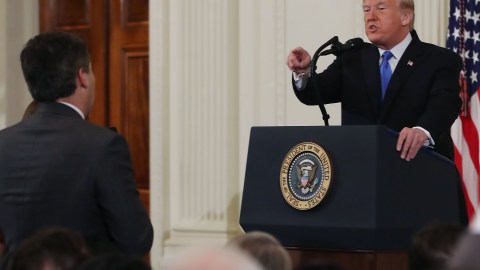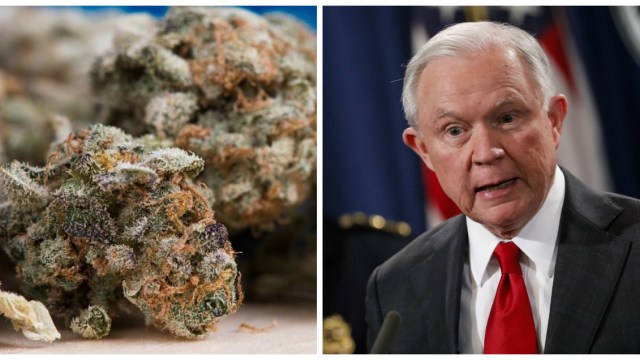Why allowing governments to single out reporters sets a dangerous precedent

(Photo by Mark Wilson/Getty Images)
- CNN reporter Jim Acosta has frequently locked horns with President Donald Trump during press briefings.
- On Wednesday, Acosta and Trump had a standoff that ended with the White House revoking the reporter’s press badge.
- White House Press Secretary Sarah Sanders issued a tweet saying Acosta had placed his hands on an intern who tried to take the microphone away from him, a claim which many rebuked.
The White House revoked the press badge of CNN reporter Jim Acosta following a heated exchange with President Donald Trump during a press conference on Wednesday.
At the press conference, Acosta tried to ask the president multiple questions about the migrant caravan and the Russia probe. The president soon grew irritated with Acosta’s line of questioning, and a White House intern approached the reporter to take away the microphone.
In a video of the event, Acosta’s arm makes contact with the aide’s arm as he refuses to cede the microphone.
White House press secretary Sarah Sanders suggested in a tweet that Acosta had become aggressive during the standoff.
Later, Sanders tweeted a video of the encounter that highlights what she called “inappropriate behavior.” However, the video appears to contain extra frames compared to the original C-SPAN recording, and she’s since been criticized for spreading a video that was, seemingly, doctored to exaggerate the severity of the encounter.
Some journalists, even critics of CNN, came out in defense of Acosta following Sanders’ suggestion that he became physical with the White House intern.
How governments tactically destroy reporters’ reputations
Melissa Chan, a New York Times journalist who in 2012 was expelled from China after her reporting angered government officials, took to Twitter on Thursday morning to outline why she believes journalists should hang together, or else they’ll “hang separately.”
Chan cautioned that sitting by while an administration destroys the reputation of a particular journalist will set a dangerous precedent for reporters in the future.





